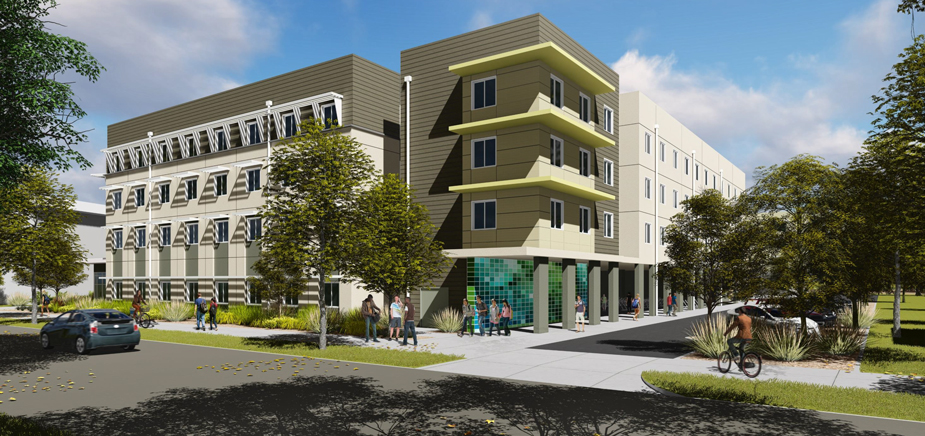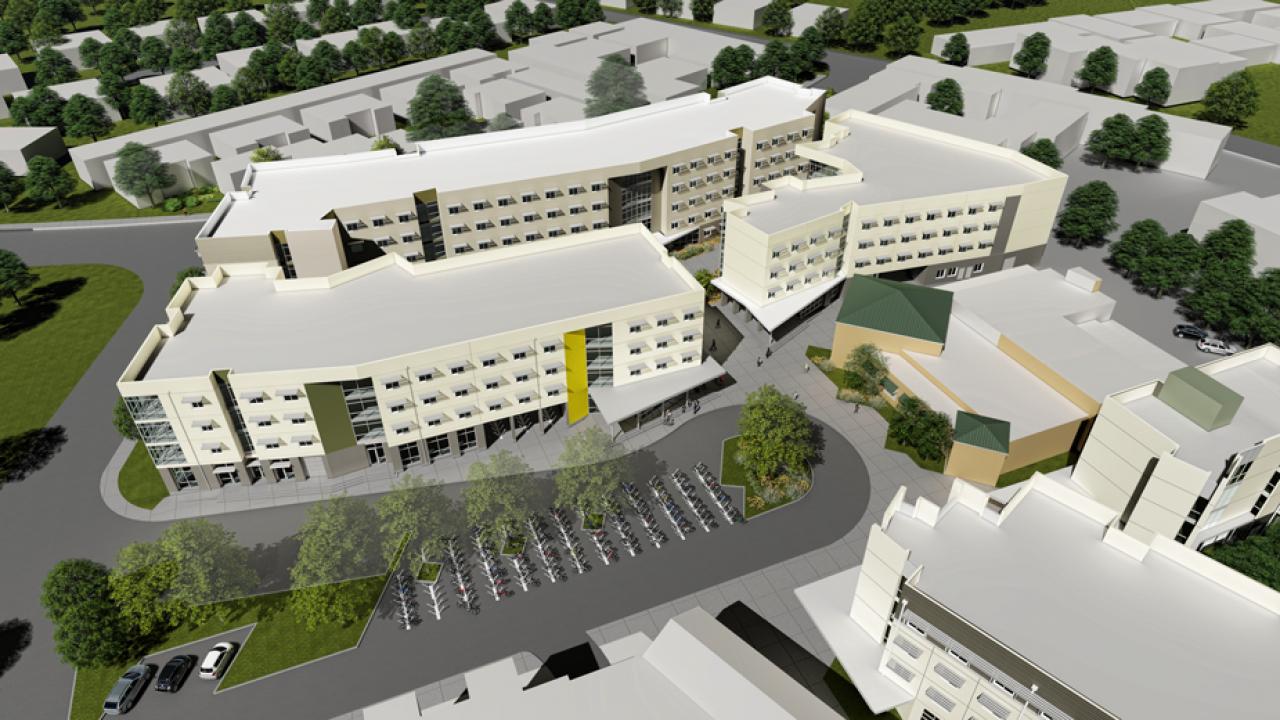UC Davis gained Board of Regents approval last week for the final phase of the Cuarto student housing area’s redevelopment: the Emerson Hall replacement project.
It will take down a 50-year-old building, which houses about 500 students, to make way for three new buildings with room for a total of 809 students.
The board voted unanimously March 15 to approve the project’s budget and design, one day after the Finance and Capital Strategies Committee considered the matter and recommended approval.
The committee heard first from Chancellor Gary S. May, who described the Emerson Hall replacement project as the culmination of a multiyear neighborhood plan that began with the renovation of the Cuarto Dining Commons and includes the Webster Hall replacement project, now under construction.
“The Emerson Hall replacement project is one of many student housing projects that are currently underway at UC Davis,” the chancellor said. “In fact, UC Davis is implementing its most ambitious student housing and dining plan in the history of the campus.”
The overall strategy combines university-owned, first-year residence halls (such as the Emerson and Webster replacements, and the new Tercero 4), and public-private projects to provide apartment-style housing for upper division and graduate students. The public-private components — at Orchard Park and West Village — would add 5,200 student beds over the next six years.

Cuarto’s redevelopment
The Cuarto area, north of Russell Boulevard across from the main campus, comprises:
- Emerson and Webster halls, privately built (with swimming pools) in 1967 as suite-style residence halls, and acquired by the university in 1986
- Thoreau Hall (also suite-style), built by the university in 1989
Emerson is set to close at the end of the 2018-19 academic year, the Webster Hall replacement will open in the fall of 2019 and the Emerson replacement will open in the fall of 2022. Neither of the new projects will have a swimming pool.
The old Webster housed 260 students; the replacement will house 400, for a gain of 140. The Emerson replacement will house about 300 more students than the old Emerson — making for a net gain of 440 beds in the Cuarto area.
The new Emerson will have three buildings, two of four stories and one of five stories — the fifth story (and 100 more beds) added as a result of regents’ feedback in September, asking for higher density, said Emily Galindo, associate vice chancellor for Student Affairs, who on May 1 will become interim vice chancellor.
The new complex also will include informal interaction space, student advising center, multipurpose room, music room, lounge spaces, study rooms and laundry rooms.
The construction cost of approximately $109 million will be repaid over time through student residence fees.
Orchard Park and West Village
Chancellor May and Kelly Ratliff, vice chancellor of Finance, Operations and Administration, briefed the committee on planned housing developments at Orchard Park and West Village. After a public request for proposals, UC Davis is negotiating with University Student Living to develop these projects.
The current proposal from USL for Orchard Park would provide 200 two-bedroom, family apartments (200 beds for students and 200 for family members) as called for in the original request for proposals, and an additional 1,200 beds for single graduate students on the same site.
At West Village, the current proposal calls for 3,800 new student beds in addition to the 2,000 students already living there. Up to 1,200 of the new beds would be master-leased by UC Davis as housing for undergraduate transfer students.
Affordability is a key objective for both the Orchard Park and West Village projects, Ratliff said. The goal is to set rents at levels significantly below market rates in the city of Davis.
Current plans call for the new Orchard Park and West Village developments to open as soon as fall 2020.
Long-range planning
The Webster, Emerson, West Village and Orchard Park projects are included in the upcoming revise of UC Davis’ Long Range Development Plan. It designates site planning areas for further housing growth to accommodate an additional 8,500 students living on campus. With each housing project, UC Davis explores options for maximizing affordability, increasing density and enriching community life.
Through extensive public outreach, the draft LRDP balances community input with long-term planning to help meet the higher education needs of California. The environmental impact report for the LRDP will be available for public comment in early April.
Media Resources
Andy Fell and Dave Jones
